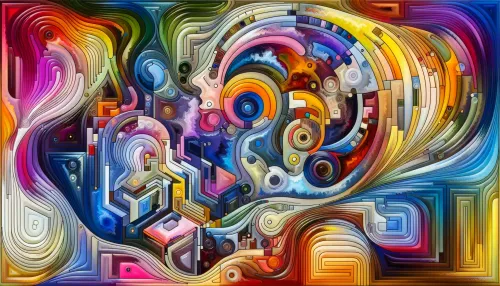Challenging Misconceptions: Understanding the Diversity of Autistic Characteristics

Autism, often depicted in mainstream media as a singular set of traits, is far more nuanced and diverse than commonly perceived. The term "autism spectrum" emphasizes the broad range of challenges and strengths exhibited by individuals diagnosed with autism. Embracing this spectrum requires a shift in societal perceptions, acknowledging the individuality and unique characteristics of each autistic person.
Acknowledging the Spectrum of Autism
One prevalent misconception surrounding autism is the belief that all individuals exhibit uniform behaviors. In reality, autistic behaviors encompass a wide spectrum, ranging from sensory sensitivities and repetitive movements to exceptional focus and attention to detail. By dispelling these myths, we can foster greater understanding and empathy towards autistic individuals, recognizing the diverse ways in which autism manifests.
Breaking Stereotypes: Myths About Autistic Behaviors
Autism traits are multifaceted, encompassing cognitive, sensory, and social aspects. Individuals on the spectrum may display varying degrees of difficulty in social interactions, communication, and behavior regulation. Moreover, autistic individuals often exhibit remarkable strengths in areas such as pattern recognition, creativity, and deep engagement with specific interests. Understanding this complexity is essential for creating inclusive environments that cater to diverse autistic traits.
The concept of neurodiversity underscores the inherent value of diverse neurological profiles within society. It encourages us to celebrate the unique gifts that autistic individuals bring to our communities. By embracing neurodiversity, we can amplify the contributions of autistic individuals in fields such as technology, arts, and scientific research, harnessing their distinct perspectives for collective innovation and progress.
Exploring the Multifaceted Nature of Autism Traits
Autism's spectrum extends beyond behavioral manifestations, encompassing a broad range of cognitive abilities and support needs. Some individuals may require minimal assistance while flourishing in academic or professional pursuits, while others may benefit from specialized support services tailored to their specific challenges. Acknowledging this wide spectrum is crucial for implementing inclusive practices that accommodate diverse expressions of autism.
Celebrating Neurodiversity in Autism
Embracing the diverse profile of autistic traits involves moving beyond traditional labels and preconceived notions. It requires recognizing the individual strengths and challenges of each person on the spectrum and appreciating the depth and richness of their experiences. Through this shift in perspective, we can foster environments that promote inclusivity, understanding, and empowerment for individuals across the autism spectrum.
The Wide Spectrum of Autism Expressions
Recognizing the diversity of autistic traits calls for personalized approaches to support and intervention. Tailoring support according to individual needs ensures that resources and accommodations are responsive to each person's unique profile. This personalized approach enhances autonomy and self-expression among autistic individuals, empowering them to thrive in their personal and professional pursuits.
Addressing misconceptions about autism is paramount to fostering a more inclusive society. By actively engaging in myth-busting conversations, we can correct misunderstandings about autism and advocate for accurate portrayals of its diverse characteristics. Through education and awareness-building efforts, we can dismantle stigma and promote an environment where autistic individuals are valued for their authentic selves.
Moving Beyond Labels: Understanding Autistic Profiles
In conclusion, understanding the diversity of autistic characteristics necessitates a paradigm shift one that prioritizes inclusivity, appreciation of neurodiversity, and personalized support tailored to individual needs. By challenging misconceptions and embracing the multifaceted nature of autism, we pave the way for a more equitable and empathetic society that honors the unique contributions of all individuals, including those on the autism spectrum.
Frequently Asked Questions
The autism spectrum refers to the wide range of challenges and strengths exhibited by individuals diagnosed with autism. It emphasizes that autism is not a singular condition but encompasses diverse traits and behaviors, highlighting the individuality of each autistic person.
Supporting autistic individuals effectively requires personalized approaches tailored to their unique needs. By recognizing the diversity of traits and challenges, we can provide resources and accommodations that enhance their autonomy, self-expression, and ability to thrive in various environments.
Neurodiversity is important because it celebrates the inherent value of diverse neurological profiles within society. Recognizing neurodiversity allows us to appreciate the unique contributions of autistic individuals, fostering inclusivity and innovation across various fields, including technology and the arts.
Check Out These Related Articles

Unraveling Sensory Sensitivities: Understanding the Realities of Autism

Harmonizing Healthcare: The Interdisciplinary Effort Shaping the Future of Autism Therapy

Navigating Mealtimes Successfully: Practical Strategies for Managing Selective Eating in Autistic Children
